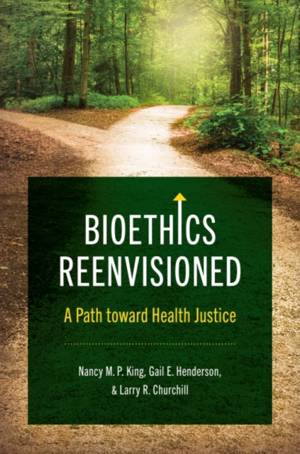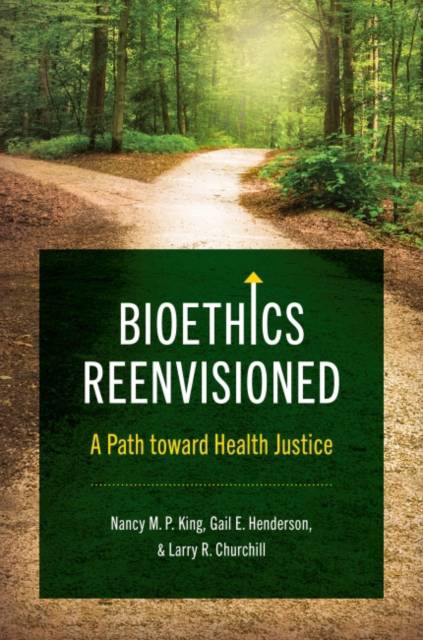
Je cadeautjes zeker op tijd in huis hebben voor de feestdagen? Kom langs in onze winkels en vind het perfecte geschenk!
- Afhalen na 1 uur in een winkel met voorraad
- Gratis thuislevering in België vanaf € 30
- Ruim aanbod met 7 miljoen producten
Je cadeautjes zeker op tijd in huis hebben voor de feestdagen? Kom langs in onze winkels en vind het perfecte geschenk!
- Afhalen na 1 uur in een winkel met voorraad
- Gratis thuislevering in België vanaf € 30
- Ruim aanbod met 7 miljoen producten
Zoeken
Bioethics Reenvisioned
A Path Toward Health Justice
Nancy M P King, Gail E Henderson, Larry R Churchill
€ 36,95
+ 73 punten
Uitvoering
Omschrijving
Bioethics needs an expanded moral vision. Born in the ferment of the 1970s, the field responded to rapid developments in biomedical technology and injustices in clinical care and research. Since then, bioethics has predominantly focused on respect for autonomy, beneficence and nonmaleficence, and the zero-sum "lifeboat" ethics of distributive justice, applying these principles almost exclusively within the walls of medical institutions. It is now time for bioethics to take full account of the problems of health disparities and structural injustice that are made newly urgent by the COVID-19 pandemic and the effects of climate change. This book shows why and how the field must embrace a broader and more meaningful view of justice, principally by incorporating the tools and insights of the social sciences, epidemiology, and public health. Nancy M. P. King, Gail E. Henderson, and Larry R. Churchill make the case for a more social understanding and application of justice, a deeper humility in assessing expertise in bioethics consulting, a broader and more relevant research agenda, and greater appreciation of the profound health implications of global warming.
Specificaties
Betrokkenen
- Auteur(s):
- Uitgeverij:
Inhoud
- Aantal bladzijden:
- 214
- Taal:
- Engels
- Reeks:
Eigenschappen
- Productcode (EAN):
- 9781469671581
- Verschijningsdatum:
- 6/12/2022
- Uitvoering:
- Paperback
- Formaat:
- Trade paperback (VS)
- Afmetingen:
- 156 mm x 234 mm
- Gewicht:
- 335 g

Alleen bij Standaard Boekhandel
+ 73 punten op je klantenkaart van Standaard Boekhandel
Beoordelingen
We publiceren alleen reviews die voldoen aan de voorwaarden voor reviews. Bekijk onze voorwaarden voor reviews.









